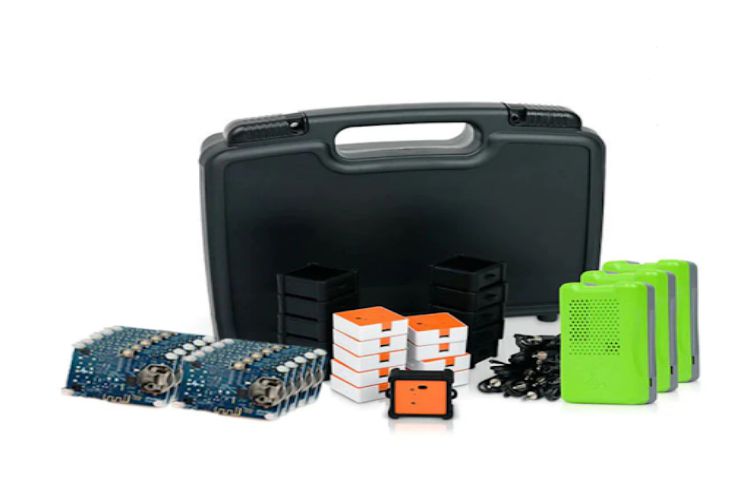 Data logging is the systematic recording of measurements, observations, or events. A data logger is also the equipment used for data logging. When continuous measurements of an instrument are required, data recorders come into play. Data loggers are an essential component in the area of geotechnical monitoring and instrumentation.
Data logging is the systematic recording of measurements, observations, or events. A data logger is also the equipment used for data logging. When continuous measurements of an instrument are required, data recorders come into play. Data loggers are an essential component in the area of geotechnical monitoring and instrumentation.
Here’s what you should know about data loggers.
Common Applications For Data Loggers
Unlike the PocketLab STEM Classroom Bundle V1, which may be employed as the perfect bundle for launching your students into learning-by-doing, physical computing, programming, electronics, and robotics, data loggers are utilized in several sectors. However, they are most typically employed to track high-value and temperature-sensitive assets.
Data recorders are widely used to track perishable commodities and pharmaceutical deliveries. Using these solutions guarantees that the items stay in perfect condition throughout transportation and that any breaches of the standards are swiftly recognized.
Data loggers may be used in various sectors, including asset monitoring, vehicle fleets, storage facilities, and fine arts. They provide common functions such as temperature monitoring and location tracking, enabling them to be used in practically any sector.
One of the finest applications for data loggers is to improve asset visibility across the supply chain. Because supply chains are frequently complicated and items travel through several hands, visibility is an essential component that must exist. Data loggers are a dependable and time-saving monitoring option for any firm that needs asset monitoring.
The high accuracy, simplicity of use, better supply chain visibility, easier compliance procedures, and digitization of monitoring are some of the primary benefits of data loggers and the data gathered.
What Can Assets Benefit From Data Loggers?
Any high-value, fragile, or temperature-sensitive assets gain the most from data loggers. Supply networks are often complicated, with several contact points for each product, emphasizing the need for tight monitoring to maintain high-level visibility among key supply chain players. Another benefit of data loggers is that they guarantee compliance and regulatory procedures are followed in highly regulated industries. This includes widely disseminated biopharmaceuticals such as vaccinations and serums.
The transportation of these critical and in-demand items must adhere to suitable requirements, such as visibility and traceability of the circumstances encountered. A temperature-sensitive commodity, such as beef, might be carried in shipping containers over several weeks as an example of a product trip.
Where Can You Use A Data Logger?
Data loggers are incredibly adaptable and may be used as monitoring devices in almost any business today to monitor asset status. Data loggers may include a variety of sensors and integrated technologies that monitor factors like location, temperature, and even shock and light. The use case or difficulty encountered determines how these solutions may be employed and what sort of data logger should be used.
While these devices monitor certain metrics and circumstances, they must also fulfill industry requirements such as IP grade certifications. Certain tests may be performed to guarantee that these solutions resist factors such as dust and water. Devices may be destroyed, and data gathering might be hampered if specific ratings are not met.
Moreover, data loggers may be utilized in various ways, including tracking items as they move through the supply chain, monitoring reusable supply chain assets, and checking assets in cold storage. Temperature-sensitive or high-value items, such as vaccinations, meat, or priceless artwork, are often monitored throughout transit to ensure they stay within the proper parameters.
Data Loggers may be used in OTFI (On Time In Full) metrics for supply chains to monitor the performance of a company’s delivery process by measuring the proportion of on-time vs. late deliveries. Data loggers may help by providing essential information and tracking the status and location of their shipments.
Companies may quickly communicate data with their customers or other supply chain stakeholders using sophisticated data loggers, allowing for more openness amongst all parties involved.
Choosing A Data Logger
Different standards must be considered when deciding on a data logger to determine which solution best meets a company’s monitoring requirements. Adapt Ideations offers a variety of monitoring solutions and asset tracking that may be used in a variety of sectors, including but not limited to biopharmaceuticals, cold chain logistics, and food and drinks.
Furthermore, it is critical to determine how long monitoring is necessary and the required temperature range to ensure that the solution meets the needs of the use case. For example, suppose the items being carried are perishables that must be kept within a specified temperature range to be viable. In that case, temperature monitoring is critical to consider when selecting a temperature data logger. In contrast, precious assets like fine art may need extra capabilities like tamper detection.
Some attributes are regarded as secondary needs since they are desirable but not required for every carried item. Cost, certifications of the solution and security features, scalability of the solutions, vendor capacity to satisfy requirements, device validation, and API integration are all factors to consider.
Conclusion
Data loggers are devices that gather and store data for a prolonged time. Depending on the needs, the data may contain temperature measurements, moisture, power, voltage, or other essential indications. Data loggers offer various uses, from humidity and temperature recorders to adaptable, high-speed recording systems.
You may utilize portable, stand-alone data loggers powered by batteries to track and monitor temperatures, voltages, power, moisture, and other parameters. The offered application, like PocketLab, simplifies data monitoring, transmission, and analysis.











